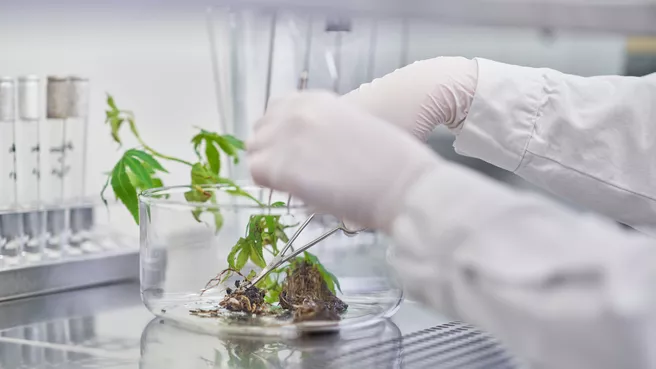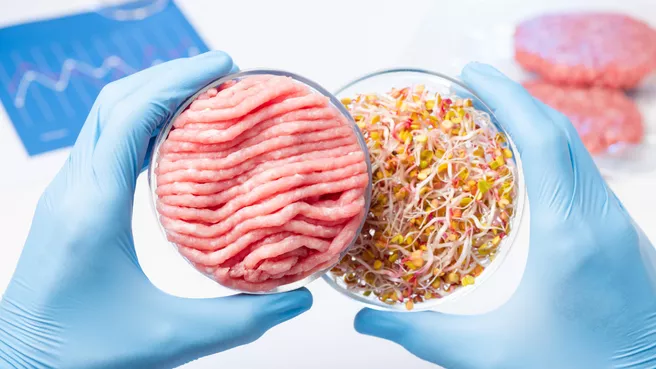The aim of the Innovation Space is to bring together partners from science and industry and jointly put research results into practice faster and more comprehensively than is often the case. The network currently includes 73 institutions, 45 of which are from the industrial side and 28 from research institutions.
The project focuses on three areas of innovation. On the one hand, the participants are looking at the production, application and market preparation of new food and feed ingredients. Secondly, they are looking at options for agriculture under controlled conditions, such as vertical farming. Resource efficiency will also be considered, with a holistic assessment at the center of all three fields.
Hemp4Food is a NewFoodSystems project currently being worked on by Prof. Dr. Ute Weisz and her team at the School of Life Sciences at the Technical University of Munich. The focus here is on the holistic processing of hemp seeds. "Our aim is to be able to launch as many product innovations as possible on the market together with our industrial partners once the project is complete," explains Ute Weisz.
The potential of hemp seeds has come into focus in recent years, especially in the food and cosmetics industry. In addition to the use of the low-THC hemp plant as a source of fiber, hemp oil, obtained from hemp seeds, is the most widely used product. A so-called press cake, which is rich in protein and fiber, remains after the oil is produced. This makes this residual product extremely interesting for the production of new foods. The Hemp4Food project therefore aims to make holistic use of hemp seeds for the production of high-quality and functional protein ingredients. These protein ingredients will then be processed into prototypes for sausage alternatives or seafood alternatives, such as vegan fish sticks. In addition to production, consumer acceptance and economic viability will also be investigated.
Another project, PERFEG-MEAT, is coordinated by Prof. Dr. Marius Henkel, also at the TUM School of Life Sciences. Here, the researchers are working on efficiency-optimized and sustainable processes in the production of cultured meat. More on this topic is explained in the video “Food of the future: Meat from the laboratory“.
Further information:
NewFoodSystems: www.newfoodsystems.de
Hemp4Food: https://newfoodsystems.de/projekte/hemp4food/
PERFEG-MEAT: https://newfoodsystems.de/projekte/perfeg-meat/
Professorship for Plant Proteins and Nutrition: https://www.lse.ls.tum.de/en/ppn/startpage/
Professorship for Cellular Agriculture: https://www.lse.ls.tum.de/en/cellag/home/
Video insight “Food of the future: Meat from the laboratory“: https://www.ls.tum.de/en/ls/research/alternative-proteins/
Scientific contact:
Prof. Dr. Ute Weisz
Professorship for Plant Proteins and Nutrition
Technische Universität München
Weihenstephaner Berg 1
85354 Freising
Tel.: +49 8161 71-3536
ute.weisz(at)tum.de
Prof. Dr.-Ing. Marius Henkel
Professorship for Cellular Agriculture
Technische Universität München
Gregor-Mendel-Str. 4
85354 Freising
Tel.: +49 8161 71-5130
marius.henkel(at)tum.de
Press contact TUM School of Life Sciences:
Elisabeth Habisch
Press and public relations
Tel.: +49 8161 71-3207
elisabeth.habisch(at)tum.de

